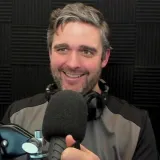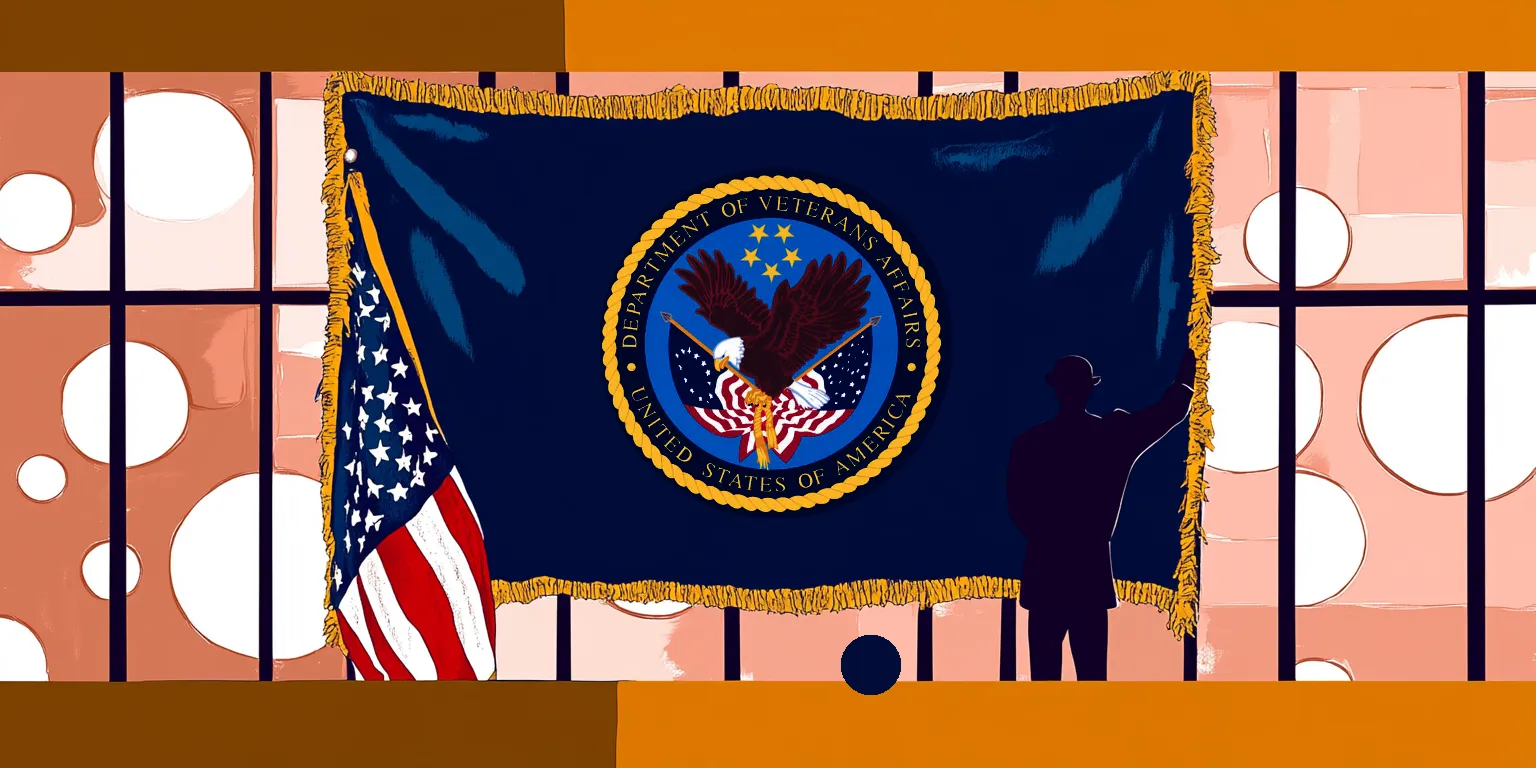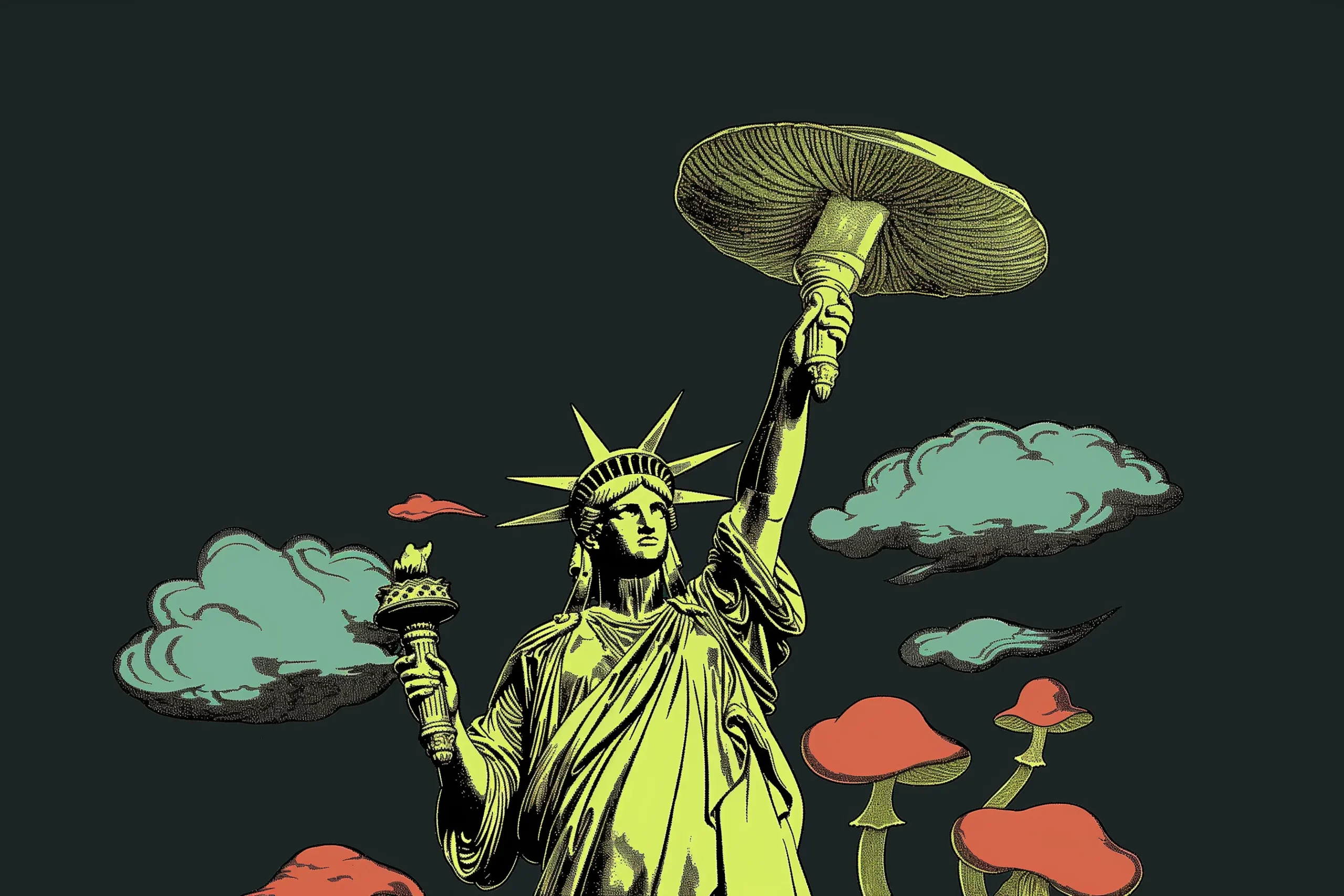From the corridors of Ukraine’s parliament to the research labs of Texas, the potential of psychedelic substances is being recognized and harnessed for various applications around the globe. As we delve into the major psychedelic news this week, we witness a tapestry of stories that underscore these powerful compounds’ growing acceptance and understanding.
Ukraine Moves Towards Medical Marijuana Legalization

As The Marijuana Herald reports, Ukraine’s Verkhovna Rada (Parliament) has taken a significant step towards legalizing medical marijuana. In a recent session, the parliamentarians passed the legislation through its first reading with a vote count of 268 to 137. This legislation, pending for approximately two years, now requires one more reading before it can be presented to President Volodymyr Zelenskyy for his consideration. President Zelenskyy has strongly supported the bill, indicating that he would promptly sign it into law once it reached his desk.
The momentum for this legislation picked up earlier this year, especially with President Zelenskyy amplifying calls for the legalization of medical marijuana. In a notable address to the parliament, Zelenskyy emphasized the need to “honestly legalize cannabis-based medicine” for those in need, advocating for comprehensive scientific research and controlled manufacturing within Ukraine. He further stressed the importance of adopting global best practices and effective policies to ensure Ukrainians do not suffer from pain, stress, and trauma—especially in war.
The proposed bill, as outlined by the Minister of Healthcare Viktor Liashko, aims to regulate the circulation of cannabis for medical and industrial purposes and scientific research. The primary objective is to enhance patient access to essential treatments, especially for conditions like cancer and post-traumatic stress disorder (PTSD) resulting from war. Reflecting the public sentiment, a poll conducted last year revealed that 65% of Ukrainians favor legalizing medical cannabis.(1)
Keep Up with Uncensored Psychedelic Trends
Join our newsletter at Psychedelics Uncensored.
We respect and protect your privacy. By subscribing your info will be subject to our privacy policy . Unsubscribe easily at any time
David Nutt on the Revolutionary Potential of Psychedelics in Mental Health

In a story from The New Statesman, David Nutt, a renowned psychiatrist, and psychopharmacologist, has been at the forefront of studying the effects of various drugs on the human brain for over five decades. In a recent interview, he shared groundbreaking insights from his research on psychedelics, particularly psilocybin, the active ingredient in magic mushrooms. In 2012 Nutt and his team from Bristol University and Imperial College London conducted the first-ever brain imaging study on psilocybin, revealing its profound ability to “switch off” parts of the brain responsible for depression. This discovery led to further studies on patients with treatment-resistant depression, where the results were nothing short of revolutionary. Nutt recalls that after administering psilocybin, “ten out of 12 patients met the criteria for recovery from their depression” within a short period, with some even experiencing long-term relief spanning over eight years.
Nutt’s book, “Psychedelics: The Revolutionary Drugs That Could Change Your Life – A Guide From the Expert,” delves deeper into the science and potential of these substances. Beyond just psilocybin, the book discusses the therapeutic potential of other psychedelics like LSD, DMT, MDMA, and ketamine. The central premise is that these substances can temporarily rewire the brain, allowing individuals to break free from debilitating thought patterns and achieve lasting mental health improvements. These psychedelics are being explored as potential treatments for various conditions, including depression, addiction, post-traumatic stress disorder (PTSD), anorexia, and obsessive-compulsive disorder (OCD). Nutt emphasizes that the therapeutic potential of these drugs is immense, calling it “the biggest breakthrough in the treatment of mental health for 50 years.”
However, the journey to bring these findings to the mainstream has not been without challenges. Despite the promising results, bureaucratic hurdles and societal stigmas have often hindered research. Nutt points out the irony of how drugs like psilocybin, which are non-addictive and have a long history of human use, face stricter regulations than substances like heroin or cocaine. While countries like Australia have made strides in recognizing the medical benefits of psychedelics, the UK remains hesitant. Nutt’s advocacy continues, as he believes that the potential benefits far outweigh the risks and that a shift in perspective is crucial for the future of mental health treatment.(2)
PharmaTher Announces Breakthrough with PharmaPatch™ and DMT

Announced via GlobeNewswire, PharmaTher Holdings Ltd., a specialty pharmaceutical company, has announced the successful completion of a research study evaluating its proprietary PharmaPatch™, a microneedle patch designed for the delivery of N,N-dimethyltryptamine (DMT). Conducted in collaboration with the Terasaki Institute for Biomedical Innovation, the study aimed to develop a prototype of PharmaPatch™ for the transdermal delivery of DMT, offering a potential solution to challenges associated with oral and intravenous dosing. The research successfully fabricated and optimized DMT-conjugated microneedles, demonstrating their potential for larger doses, modified release profiles, and microdosing. Preliminary results suggest that DMT microdosing could alleviate mood and anxiety disorder symptoms.
The PharmaPatch™ technology is based on a novel biocompatible and biodegradable material known as gelatin methacryloyl (GelMA). This microneedle patch can efficiently penetrate the skin’s outer layer, offering flexible drug load capacity, controlled release, and microdosing capabilities. The patch is seen as a promising method for the systemic delivery of drugs, including psychedelics, bypassing the typical barriers associated with oral delivery. The company’s research has shown that PharmaPatch™ can effectively deliver various psychedelics, including DMT, psilocybin, MDMA, and LSD. PharmaTher is gearing up for IND-enabling studies with a prototype, aiming to pursue human clinical trials.
In addition to the research advancements, PharmaTher has announced a strategic investment into Sairiyo Therapeutics Inc., a subsidiary of PharmaDrug Inc. The investment, amounting to CAD 300,000, will grant PharmaTher a 49% ownership in Sairiyo. This collaboration aims to further the development of cepharanthine and the DMT PharmaPatch™. The funds will be utilized to advance developments in both these areas, focusing on potential treatments for ocular diseases and neuropsychiatric conditions. The partnership underscores psychedelics’ growing interest and potential in the medical and pharmaceutical sectors.(3)
Keep Up with Psychedelic Trends
Get uncensored psychedelic news, events, and updates. Join Psychedelics Uncensored!
We respect and protect your privacy. By subscribing your info will be subject to our privacy policy . Unsubscribe easily at any time
Psychedelics Offer Hope for Long-Term Cancer Patients in Texas

Coming to us from The Hill, the increasing efficacy of treatments for advanced cancer has resulted in a growing number of patients living with the disease for extended periods. However, this prolonged battle often leads to significant psychological distress. In a recent publication in the International Journal of Gynecological Cancer, a group of Texas-based scientists highlighted the potential of psilocybin, the active compound in magic mushrooms, to relieve these individuals. This perspective aligns with a broader shift in Texas and the wider medical community, which is becoming increasingly receptive to the therapeutic applications of psychedelics.
Researchers at the MD Anderson Cancer Center in Houston are preparing to launch a study next year to explore the potential of psilocybin in restoring the mental health of patients living with advanced cancers. Moran Amit, a cancer biologist at MD Anderson, emphasized the changing landscape of cancer treatment. A decade ago, patients either recovered or succumbed to the disease. However, advancements in targeted treatments have resulted in a new demographic of patients who have lived with cancer for years, often facing anxiety, depression, and existential crises. For women with late-stage ovarian cancer, the emotional toll is particularly high, with overwhelming anxiety and distress about their prognosis and the impact on their families.
Exploring psilocybin’s potential is part of a larger renaissance in the medical applications of psychedelics, including substances like MDMA, LSD, and ketamine. Despite their differences, these compounds uniquely help patients reframe their relationship with challenging life circumstances. Recent studies have shown that psychedelics can have lasting positive effects on well-being, quality of life, and mental health. Texas has recognized the potential benefits, especially for its large veteran population. In 2021, the Texas legislature passed a bipartisan law to study the therapeutic use of various psychedelics. As Amit puts it, the overarching goal is not just to prolong life but to ensure it’s worth living.(4)
GOP Congresswoman Advocates for Psychedelics and Marijuana Research for Veterans

Reported via Marijuana Moment, Rep. Mariannette Miller-Meeks (R-IA) recently emphasized the importance of exploring the therapeutic potential of psychedelics and cannabis, especially for military veterans suffering from post-traumatic stress disorder (PTSD). Speaking on the House floor, Miller-Meeks, a doctor, former Iowa Department of Public Health director, and a 24-year U.S. Army veteran, highlighted the devastating and often untreated effects of PTSD and other mental or physical ailments on veterans. She praised the recently released Food and Drug Administration (FDA) guidance on psychedelics research, stating that it would provide patients and doctors with better treatment alternatives than opioids.
The FDA’s guidance on designing clinical trials for psychedelic drugs was a response to a bipartisan bill introduced by Miller-Meeks and Reps. Dan Crenshaw (R-TX) and Ro Khanna (D-CA). This move by the FDA marks the first-ever non-binding guidelines to support the development of psychedelic medicines. Miller-Meeks, her co-sponsors, and the co-chairs of a congressional psychedelics caucus have lauded the agency for this initiative. Additionally, Miller-Meeks discussed another bill she’s advocating for, the Veterans Cannabis Analysis, Research, and Effectiveness (CARE) Act, which she introduced in March. This legislation aims to allow the U.S. Department of Veterans Affairs to research the efficacy of medical cannabis in treating chronic mental and physical pain.
Miller-Meeks’ commitment to this cause is further evidenced by her involvement in roundtables on emerging breakthrough therapies as the House Veterans Affairs Health Subcommittee chair. She expressed hope that more individuals would support these innovative research avenues to benefit veterans. In related news, the National Defense Authorization Act, which recently passed the House, includes provisions for the Department of Defense to study psilocybin and other substances and a pilot program on medical marijuana. The Senate Appropriations Committee has also called on the VA to facilitate medical marijuana access for veterans and investigate the therapeutic potential of psychedelics.(5)
As we reflect on the week’s developments, it’s evident that the psychedelic renaissance is in full swing. Countries, states, and individual advocates are pushing boundaries, challenging outdated stigmas, and pioneering research that could redefine mental health treatment. Each day, the narrative around psychedelics is shifting from taboo to therapeutic.
Sources

1. Martinelli, A., TheMJHerald. (2023, July 17). Ukraine Parliament Votes 268 to 137 to Legalize Medical Marijuana. The Marijuana Herald. https://themarijuanaherald.com/2023/07/ukraine-parliament-votes-268-to-137-to-legalize-medical-marijuana/
2. Cunliffe, R. (2023, July 19). David Nutt: “It’s the biggest breakthrough in mental health for 50 years.” New Statesman. https://www.newstatesman.com/encounter/2023/07/david-nutt-interview-depression-treatment-mental-health
3. Ltd, P. H. (2023, July 18). PharmaTher Announces Positive Research Results for PharmaPatchTM with N,N-dimethyltryptamine (DMT) and Strategic Investment into Sairiyo Therapeutics. GlobeNewswire News Room. https://www.globenewswire.com/news-release/2023/07/18/2706302/0/en/PharmaTher-Announces-Positive-Research-Results-for-PharmaPatch-with-N-N-dimethyltryptamine-DMT-and-Strategic-Investment-into-Sairiyo-Therapeutics.html
4. Elbein, S. (2023, July 18). Living with long-term cancer is depressing. Texas doctors say psychedelics could help. The Hill. https://thehill.com/homenews/state-watch/4104163-living-with-long-term-cancer-is-depressing-texas-doctors-say-psychedelics-could-help/
5. Jaeger, K. (2023, July 17). GOP Congresswoman Pushes For Psychedelics And Marijuana Research For Veterans In Floor Speech. Marijuana Moment. https://www.marijuanamoment.net/gop-congresswoman-pushes-for-psychedelics-and-marijuana-research-for-veterans-in-floor-speech/
This material is not intended as a replacement or substitute for any legal or medical advice. Always consult a medical professional about your health needs. Psychedelics are widely illegal in the United States, and readers should always be informed about local, state, and federal regulations regarding psychedelics or other drugs.

 David Connell
David Connell
 Ross Dillon
Ross Dillon 
